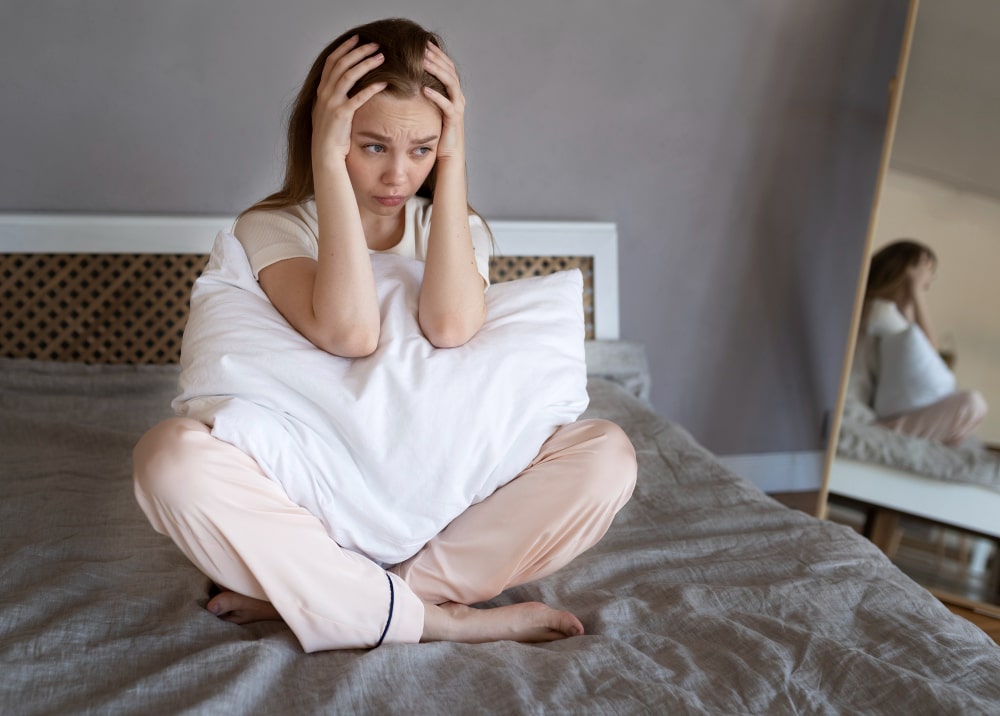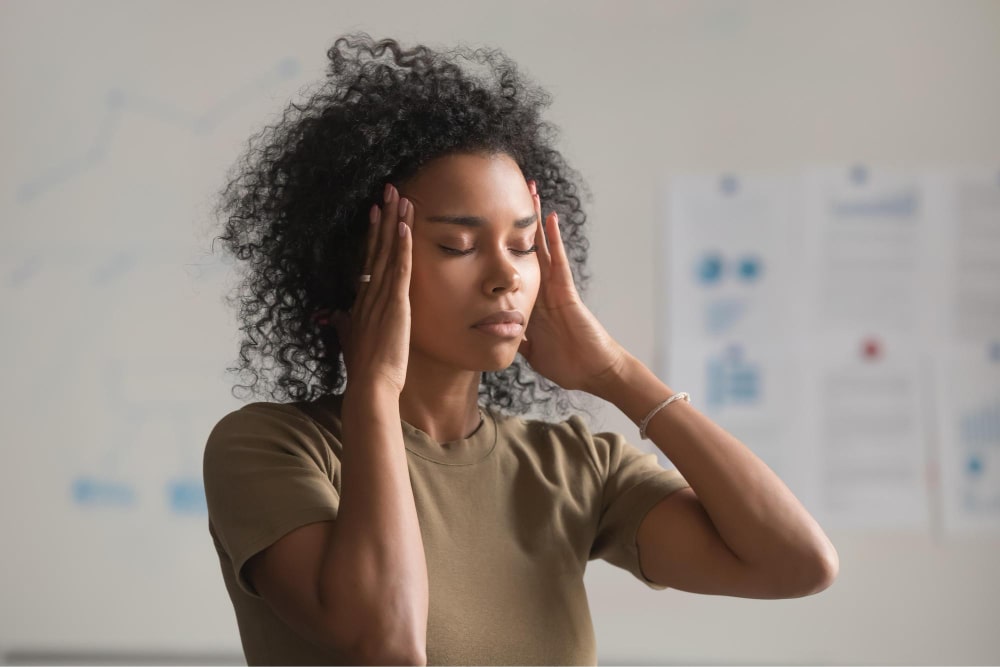Anxiety: Identifying Symptoms and Treatment Options
What is Anxiety?
Anxiety is a natural response to stress or danger, often referred to as the “fight or flight” response. It’s a feeling of fear, apprehension, or unease about something with an uncertain outcome. While occasional anxiety is a normal part of life, excessive and persistent anxiety can develop into an anxiety disorder.
Understanding Anxiety Symptoms
Anxiety symptoms can manifest both mentally and physically. Common mental symptoms include excessive worrying, restlessness, irritability, and difficulty concentrating. Physical symptoms often include rapid heartbeat, trembling, sweating, and gastrointestinal discomfort. It’s important to note that symptoms can vary widely among individuals.


Types of Anxiety Disorder
Anxiety disorders are diverse, each with its unique features and triggers. Generalized Anxiety Disorder (GAD) involves excessive worry about everyday situations. Social Anxiety Disorder centers around intense fear of social interactions, while Panic Disorder leads to sudden and recurrent panic attacks. Obsessive-Compulsive Disorder (OCD) involves repetitive thoughts and behaviors, and Post-Traumatic Stress Disorder (PTSD) develops after experiencing trauma.
Anxiety Attack vs. Panic Attack
People often use the terms “anxiety attacks” and “panic attacks” interchangeably, but they have distinct differences. Anxiety attacks typically arise in response to stressors and may cause intense worry and fear. Panic attacks, on the other hand, are sudden and brief episodes of intense fear that trigger severe physical symptoms, often making individuals feel as if they’re losing control or even dying.
Anxiety Treatment Options
Finding the right anxiety treatment is essential for managing symptoms and improving overall well-being. In Indian Harbour Beach, FL, there are various options available. Therapy, both individual and group, can provide coping mechanisms and insights into managing anxiety.
Therapy and Counseling
Cognitive-behavioral therapy (CBT) is a widely used approach that helps individuals identify and modify negative thought patterns. Exposure Therapy gradually exposes individuals to their fears, helping reduce sensitivity. Individual or group therapy can offer valuable support and coping strategies.
Medications
Antidepressants and anti-anxiety medications are prescribed to manage anxiety disorders. These medications help balance brain chemistry and alleviate symptoms. However, they may have side effects and require careful monitoring by a healthcare professional.
Lifestyle Changes
Incorporating regular exercise, a balanced diet, and sufficient sleep can positively impact anxiety levels. Stress management techniques such as mindfulness, meditation, and yoga can also provide relief.
Online Anxiety Treatment
With the rise of telehealth, online platforms offer access to therapy and counseling from the comfort of your home. Our online programs provide flexibility and convenience for those with busy schedules or limited access to in-person care to ensure that everyone can receive quality mental healthcare services.
Innovative Approaches: TMS Therapy for Anxiety
Transcranial Magnetic Stimulation (TMS) therapy is a cutting-edge treatment that uses magnetic fields to stimulate nerve cells in the brain. Clinical studies have shown promising results regarding the effectiveness of TMS therapy for depression. Many individuals experience a significant reduction in anxiety symptoms, including excessive worry, restlessness, and irritability. While TMS is not a one-size-fits-all solution, it has provided relief for a notable portion of those who undergo the treatment.
Ketamine Treatment for Anxiety
Originally used as an anesthetic, Ketamine’s potential as a treatment for anxiety has garnered attention in recent years. Ketamine treatment involves controlled administration of the drug under medical supervision. It’s essential to note that Ketamine is not a first-line treatment and is typically reserved for cases of severe and treatment-resistant anxiety.
When to Seek Professional Help
Knowing when to seek professional help is vital. If anxiety symptoms interfere with daily life, relationships, work, or overall well-being, it’s advisable to consult a mental health professional. Early intervention can prevent symptoms from worsening. Anxiety is a legitimate medical condition, and breaking the stigma surrounding it is crucial. Education, open conversations, and dispelling misconceptions can help create a more supportive and understanding society.
Anxiety Treatment in and near Indian Harbour Beach, FL
Exploring the world of anxiety, its symptoms, and treatment options can be overwhelming, but with the right information and support, you’re not alone in this journey. Remember that seeking help is a sign of strength, and there are a variety of effective strategies, from traditional therapies to innovative approaches like TMS therapy and Ketamine treatment, to help you achieve better mental health. Take the first step towards a calmer you, reach out to us at Atlantis Integrative Medicine & Psychiatry Wellness Center for expert guidance today.


Frequently Asked Questions
Anxiety can manifest in various ways, both physically and emotionally. Common symptoms include excessive worry, restlessness, difficulty concentrating, irritability, muscle tension, and sleep disturbances. Individuals might also experience panic attacks characterized by sudden and intense fear, along with physical sensations like a racing heart, shortness of breath, and trembling.
Caffeine, a stimulant, can exacerbate anxiety symptoms by increasing heart rate and causing jitteriness. While some people might feel alert with caffeine, others may experience heightened anxiety. Alcohol, on the other hand, can act as a depressant, providing initial relaxation but potentially leading to increased anxiety as its effects wear off. Additionally, regular excessive alcohol consumption can lead to dependency, further contributing to anxiety issues.
Physical activity releases endorphins, which are natural mood lifters. Engaging in consistent exercise can help reduce anxiety and enhance feelings of well-being. Whether it’s walking, jogging, swimming, or yoga, any form of exercise can be beneficial.
A balanced diet ensures that the body receives essential nutrients which can directly and indirectly affect mood and stress levels. Certain foods, such as those rich in omega-3 fatty acids and B vitamins, can be beneficial for anxiety. Conversely, excessive sugar and processed foods can exacerbate anxiety symptoms.
Deep breathing, meditation, and progressive muscle relaxation are all relaxation practices that can help calm the mind and lessen anxiety symptoms. These methods focus on releasing tension and promoting a state of calmness. By incorporating these practices into daily routines, individuals can develop tools to manage stressful situations more effectively.
Adequate sleep is essential for cognitive function, emotional regulation, and overall health. Lack of sleep can heighten anxiety symptoms and impact the ability to cope with stress. Ensuring 7-9 hours of restful sleep per night can help regulate mood and keep anxiety at bay.
Quick Links
Contact
- Phone: (320) 347-3329
- Email: info@atlantiswellnesscenters.com
- Address: 2194 A1A HWY Unit 203 Indian Harbor Beach, FL 32937
© 2024 Atlantis Integrative Medicine & Psychiatry Wellness Center, PLLC.


